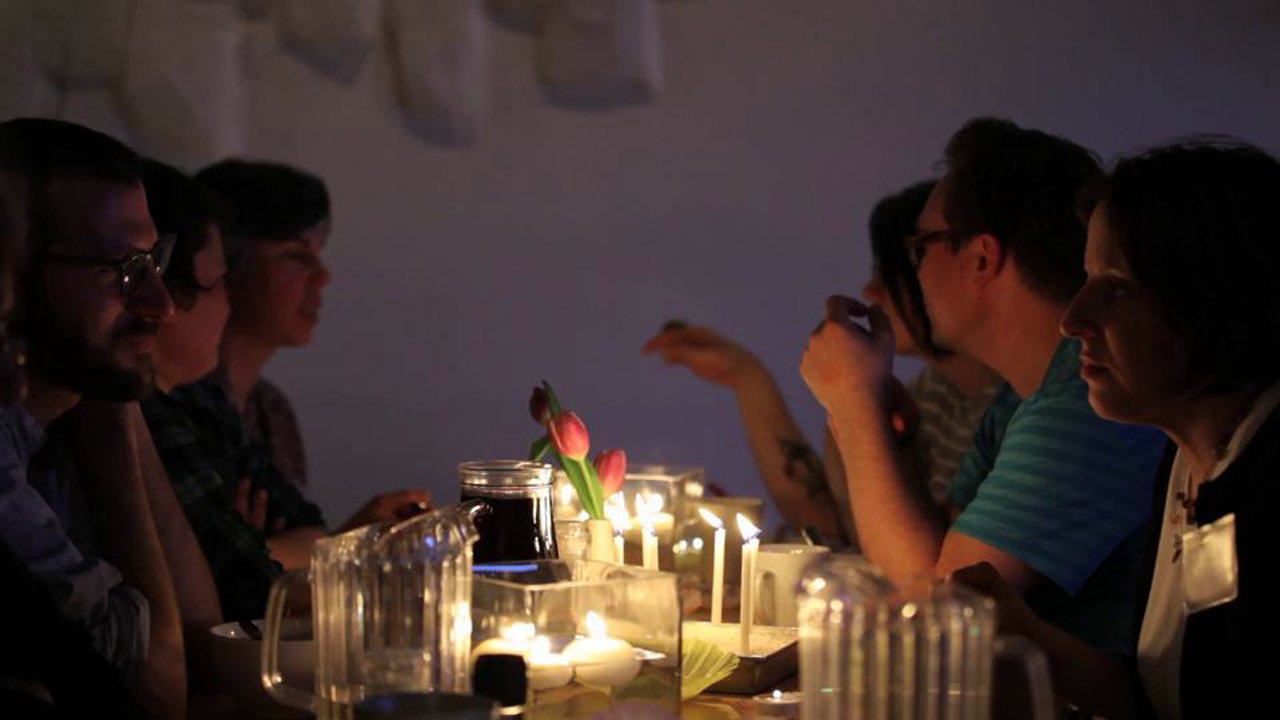StoryKeep Organizational Video || St. Lydia’s from StoryKeep on Vimeo.
Thanks to Brother David for answering my question what “Dinner Church” refers to and providing a link to St. Lydia’s in Brooklyn as an example of Dinner Church:
St. Lydia’s is a Dinner Church. We gather every Sunday and Monday night to cook and share a sacred meal, just as the first followers of Jesus did. We eat, explore scripture, offer prayers, and sing together. Tied to the Lutheran and Episcopal traditions, our worship is rooted in the patterns of the Early Church.
We are a progressive congregation in New York City, located in the Gowanus/Park Slope neighborhoods in Brooklyn.
St. Lydia’s is an experiment in what the Church might be when the meal we share is at the center of our common life. We’re building this together—come and join us!
In comments people might share other examples of Dinner Church, your experiences with Dinner Church if you have had any, and your thoughts about this…
St Lydia’s website
St Lydia’s facebook page
Today is the Ninth Day of Easter.




Our kitchen whenever friends come and share a meal.
Yes, certainly Claudia. I think many realise the importance of hospitality, and the place of food in that. Decades ago I was part of a church housegroup which followed a four-week cycle (Acts 2:42), with the fellowship week usually a shared meal. Christ is Risen!
Years ago, in a Presbyterian Church I used to attend, they did something like this, and it was quite nice. But:
“This meal is patterned after those shared by Christians in the first few centuries of the church, which evolved into our current day communion celebrations with participants sharing the bread and the cup.”
Is there any actual evidence for this, or is it just “early church wishful thinking” on the part of some evangelicals?
All Saints Palmerston North experimented with Thursday Night Live for a while(18 months). It was meant to be a meal provided for $5 every Thursday to bring the parish together and to schedule meetings either before or after the meal. It fell through because some of the initial energy was lost and the drivers behind it lost motivation and too few people paid the $5 and not enough people were willing to pitch in and help. But for a while, some real fellowship was had.